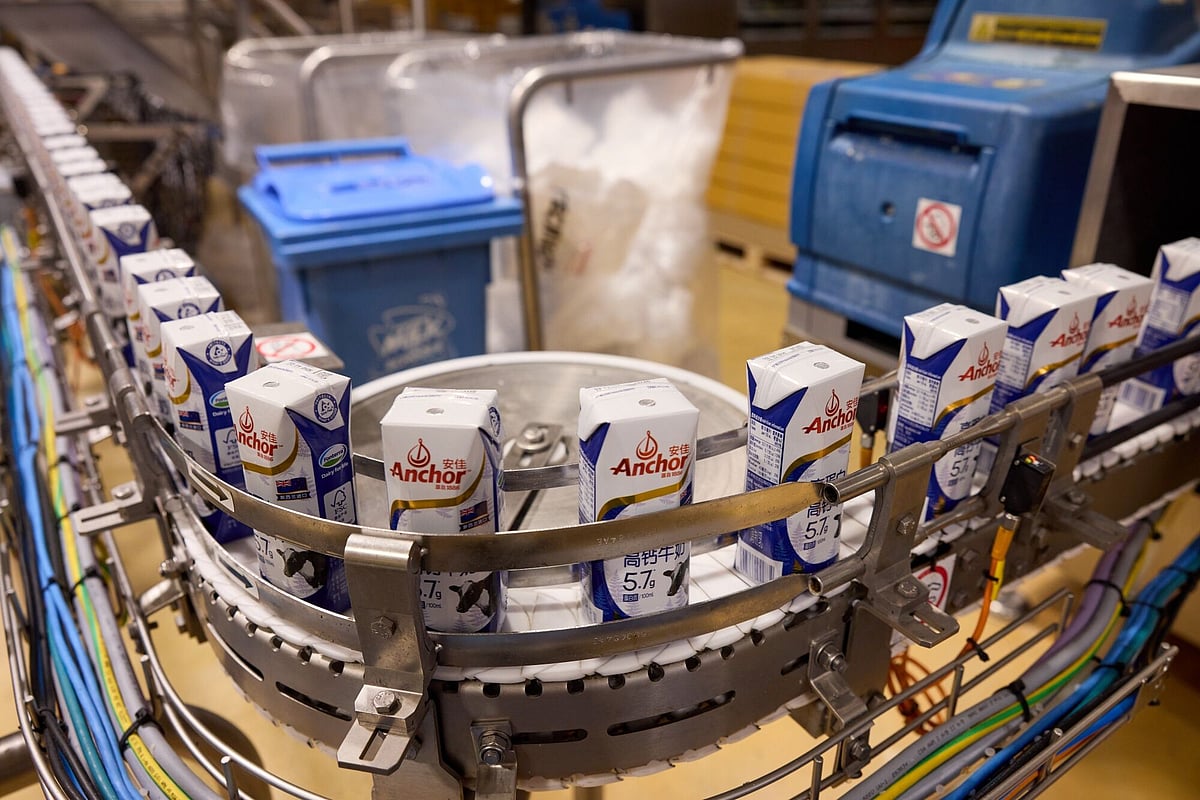New Zealand Farmers Approve Fonterra Sale to Lactalis
In a significant move for New Zealand’s dairy industry, farmers associated with the Fonterra cooperative have voted overwhelmingly in favor of selling its consumer business to the French company Lactalis. This decision, which has sparked controversy, reflects a shift in the cooperative’s strategic direction and has drawn criticism from government officials.
Details of the Sale
During a virtual meeting held on Thursday, 88.5 percent of participating farmers supported the sale of Fonterra’s global consumer and related businesses. The total transaction is valued at NZ$4.2 billion (approximately US$2.4 billion), which includes NZ$375 million attributed to Bega Cheese licenses.
Reactions from Officials
The decision has not gone unnoticed by New Zealand’s Foreign Minister, Winston Peters, who expressed strong disapproval. He characterized the sale as “utter madness” and warned that it represents a significant loss of New Zealand’s economic value. Peters highlighted that iconic brands such as Anchor, Mainland, and Kapiti would be transferred to a foreign entity, suggesting that this move could jeopardize the long-term stability of Fonterra’s operations.
Peters further elaborated that after three years, Lactalis could initiate a notice to terminate the milk supply for these brands, which he believes undermines the cooperative’s future. He described the decision as a short-sighted approach that sacrifices New Zealand’s added value for immediate financial gain.
Fonterra’s Perspective
In contrast, Fonterra’s chairman, Peter McBride, expressed satisfaction with the farmers’ decision, viewing it as a strong mandate to streamline the cooperative’s focus. McBride stated that the sale would allow Fonterra to concentrate on its core strengths, resulting in a more efficient and simplified business model. He emphasized the importance of this transition for the cooperative’s future.
Fonterra anticipates that the sale will be finalized in the first half of 2026, contingent on regulatory approvals and the necessary separation of consumer operations from the cooperative.
FAQs
What brands are included in the sale to Lactalis?
The sale includes several well-known New Zealand brands such as Anchor, Mainland, and Kapiti, which are integral to Fonterra’s consumer business.
When is the sale expected to be completed?
Fonterra expects the transaction to be finalized in the first half of 2026, pending regulatory approvals and the separation of consumer operations.
What are the implications of this sale for New Zealand’s dairy industry?
Critics argue that the sale could undermine the long-term security of Fonterra and New Zealand’s dairy industry, as it transfers valuable brands to a foreign company, potentially impacting local milk supply and economic stability.
Conclusion
The approval of the sale to Lactalis marks a pivotal moment for Fonterra and New Zealand’s dairy sector. While the cooperative aims to streamline its operations and focus on core strengths, concerns remain about the long-term implications of transferring iconic brands to foreign ownership. As the deal progresses towards completion, stakeholders will be closely monitoring its impact on the industry and local farmers.
The sale of Fonterra’s consumer business to Lactalis is part of a broader trend in the global dairy industry, where consolidation has become increasingly common. Many dairy cooperatives worldwide are reevaluating their business models in response to changing market dynamics, including fluctuating demand and competitive pressures. This transaction reflects Fonterra’s strategic pivot towards focusing on its strengths in the ingredients sector, which has been a significant area of growth for the cooperative.
As the sale moves forward, it will require careful navigation of regulatory frameworks both in New Zealand and internationally. The New Zealand government has a vested interest in ensuring that the transaction aligns with national economic goals and does not adversely affect local farmers. The outcome of this sale could set a precedent for future transactions in the agricultural sector, influencing how cooperatives manage their assets and respond to market challenges.
In the wake of the decision, farmers and industry experts will likely engage in discussions about the future of New Zealand’s dairy industry. The implications of this sale extend beyond immediate financial considerations, as stakeholders assess the long-term viability of local brands and the cooperative model in a globalized market. The ongoing dialogue will be crucial in shaping the future landscape of dairy production and distribution in New Zealand.
Also Read:
Nvidia Invests $1 Billion in Nokia for Strategic Growth







